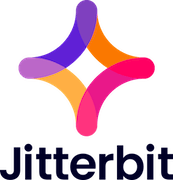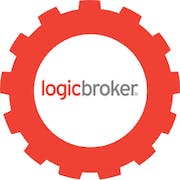In today's fast-paced business world, speed, accuracy, and efficiency are paramount. The traditional methods of exchanging business documents, such as paper-based transactions, have become slow, cumbersome, and expensive. Enter Electronic Data Interchange (EDI) software - a solution that helps companies of all sizes to exchange business documents seamlessly, with minimal human intervention. EDI software automates business processes, reduces costs, and streamlines data integration between trading partners. However, choosing the right EDI software for your business can be a daunting task. With a plethora of options to choose from, navigating the complex world of EDI software can be overwhelming. In this buyer's guide, we'll help you understand the benefits of EDI software, what to look for when choosing the right solution, and provide insights on how EDI software can help take your business to the next level.
What is Electronic Data Interchange (EDI) Software
Electronic Data Interchange (EDI) software is a type of computer program that facilitates the exchange of business data among different organizations. The software supports the transmission of electronic documents and enables businesses to communicate and exchange data with one another, without the need for any human intervention. EDI software is primarily used to streamline and automate the exchange of information between organizations. This ensures that businesses can communicate and interact with one another efficiently and effectively. Here are some of the common use cases for EDI software: - Order processing and tracking: EDI software allows businesses to automate the process of ordering and monitoring the status of orders. - Inventory management: EDI software can help businesses to manage their inventory levels, track product shipments, and monitor delivery schedules. - Shipping and logistics: EDI software can assist with automating the shipping and logistics process, including tracking the movement of goods, managing logistics providers, and monitoring transport schedules. - Invoicing and billing: EDI software helps businesses to streamline their invoicing and billing processes, by automating the generation and transmission of invoices and payments. - Supply chain management: EDI software is used extensively by businesses to manage and monitor their supply chains, including monitoring the performance of suppliers, forecasting market trends, and optimizing inventory levels. EDI software is particularly useful for companies that engage in frequent transactions with multiple partners or suppliers. This includes companies in manufacturing, retail, healthcare, finance, and logistics industries. The software enables these businesses to process large volumes of transactions quickly, accurately, and securely, resulting in significant cost savings and improved efficiency. In conclusion, EDI software is an essential tool for modern businesses that want to improve their communication and data exchange capabilities. By automating the exchange of information between stakeholders, EDI software enables businesses to enhance their operational performance, improve their supply chain efficiency, and reduce their costs while increasing productivity.
Benefits of Electronic Data Interchange (EDI) Software
Welcome to the world of Electronic Data Interchange (EDI) Software! This technology is vital for any business that needs to exchange data with partners, suppliers, or customers. EDI Software is a standardized method of exchanging business documents electronically between trading partners and automates the flow of business information. Here are some main benefits of using EDI Software: * Increased efficiency: With EDI software, there’s no need to manually handle paper-based transactions, reducing errors and manual data entry, which saves time and speeds up the processing of orders and invoices significantly. * Enhanced accuracy: EDI software provides data validation, reducing error rates and data discrepancies and eliminating the need for manual communication (e.g., phone, email) to correct issues. * Reduced costs: By replacing paper-based transactions with electronic ones, businesses save on printing, paper, postage, and storage expenses. * Improved supply chain management: EDI software provides real-time data exchange, which enables businesses to track their supply chain, monitor inventory levels and keep track of order fulfillment as goods move through the supply chain. * Increased data security: With EDI, trading partners' private information remains secure thanks to encrypted data transmission, which minimizes the risk of fraud or unauthorized access. In summary, EDI Software ensures that businesses can exchange critical data with their partners efficiently and accurately. By reducing manual data entry, businesses can reduce errors and save time, leading to increased productivity and profitability. If you’re looking for a way to streamline data exchange, reduce costs, and improve supply chain management, then EDI Software is the right tool for you.
Features of Electronic Data Interchange (EDI) Software
Electronic Data Interchange (EDI) is an essential tool for businesses that require an efficient and secure way to exchange data with their partners and customers. EDI software has revolutionized the way that companies communicate by providing a standardized methodology for exchanging data electronically. Here are 10 common features of EDI software: 1. Painless Onboarding: EDI software enables companies to onboard their partners and customers smoothly and efficiently. With built-in templates and automation tools, EDI reduces the time and effort required for data exchange setup. 2. Speed and Accuracy: With EDI, manual data entry and errors are things of the past. Electronic data exchange ensures faster and more accurate data transfer, improving productivity and reducing the risk of errors. 3. Multiple File Formats: EDI software can handle various file formats like EDIFACT, X12, and XML, making it easy for businesses to work with different partners and customers, regardless of their preferred format. 4. Customization: EDI software allows companies to customize messages and documents to meet their specific needs and those of their business partners. 5. Data Security: EDI software offers secure and encrypted transmission of data, ensuring that sensitive information remains protected. 6. Scalability: EDI software can handle a high volume of data and can scale to match your business growth. 7. Automated Workflow: With EDI software, businesses can automate their workflows, reducing manual intervention and freeing up staff resources to focus on more pressing tasks. 8. Real-time Tracking: With EDI, businesses can track data exchange in real-time, enabling them to monitor progress, resolve issues promptly, and streamline their processes. 9. Integration: EDI software can integrate with other business systems, like ERP, e-commerce platforms, and CRM, improving data flow and accuracy across the enterprise. 10. Cost-effective: By reducing manual data entry, errors, and paperwork, EDI software saves businesses time, money, and resources. In conclusion, EDI software has emerged as a game-changer in business communication, enabling companies to streamline their processes, reduce costs, and improve productivity. With an array of features that support customization, scalability, and data security, EDI software is a must-have tool for companies that need fast and efficient data exchange while maintaining data integrity.
Considerations of Electronic Data Interchange (EDI) Software
Electronic Data Interchange (EDI) software is an indispensable tool for businesses that need to exchange data files rapidly in a secure and standardized format. However, it's crucial to consider some essential factors before purchasing EDI software to ensure that the investment aligns with your business needs. Firstly, you must consider the EDI software's data transaction volume capability because this determines how much data the system can handle at any time. You must also ensure that the software can accommodate the type of business documents you want to exchange, such as orders, invoices, or dispatch alerts. Secondly, you must consider the cost of the EDI software. The initial investment can be relatively high, and deployment times can be lengthy, so you want to ensure you're investing in software that delivers a strong ROI. Thirdly, consider the software's scalability. Your business needs may evolve over time, so your EDI solution must be able to grow alongside your business. You'll want to investigate the software's flexibility in adapting to new connection protocols, integration with new systems, and the addition of new trading partners. Lastly, it's crucial to consider the provider's reputation, reliability, and customer support levels before investing in any EDI software. Make sure the provider has expertise in your industry and can provide excellent customer support to ensure minimal downtime and maximum return on investment. By considering these essential factors, you can ensure you're investing in an EDI software solution that meets your business needs efficiently.
Software Trends for Electronic Data Interchange (EDI) Software
Electronic Data Interchange (EDI) software is increasingly becoming a vital component of businesses’ communication strategy for faster and more efficient data transfer. As we look into 2023 and beyond, the following EDI software trends are expected to change the landscape of data exchange. 1. Increased Adoption of Cloud-Based Solutions: Cloud-based EDI software has been gaining traction as it eliminates the need for on-site IT infrastructure and reduces costs. Businesses are expected to embrace cloud-based EDI solutions to improve collaboration, streamline communication, and enhance supply chain transparency. 2. Integration with AI and Machine Learning: With the growth of artificial intelligence and machine learning, companies are looking for ways to integrate these innovations with their EDI processes. The integration of AI and machine learning will help enhance data analysis and improve decision-making processes. 3. Focus on Cybersecurity: Cybersecurity is becoming one of the top concerns for businesses adopting EDI software. To mitigate the risk of cyber threats and data breaches, companies are expected to invest in secure EDI solutions to protect their data and maintain compliance. 4. Scalability: Scalability is another trend that EDI software providers are focusing on. With businesses constantly evolving, EDI software must be scalable to adapt to businesses of all sizes. 5. Blockchain Integration: The integration of blockchain technology with EDI software is becoming popular. The aim is to create a more secure and tamper-proof data exchange system that enhances transparency. EDI software providers will have to keep up with these trends and continue to innovate to stay competitive. As technology continues to evolve, businesses will have to embrace new EDI solutions to remain competitive and efficient.









